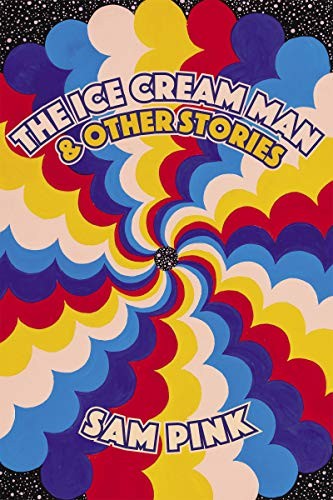
The Ice Cream Man and Other Stories
کتاب های مرتبط
- اطلاعات
- نقد و بررسی
- دیدگاه کاربران
نقد و بررسی

February 17, 2020
Pink’s light touch turns the ordinary into the surreal in his humorously understated collection (after The Garbage Times/White Ibis). In stories mainly set at workplaces governed by mundane minutiae, Pink highlights the absurdity in everyday events. Each sentence, whether a single word or a lengthy paragraph, is offset with white space before and after. The effect is to isolate and elevate individual moments, like panels in a graphic novel. (Pink is also a painter.) The abrasive title character in “The Dishwasher” operates in a perpetual state of hilarious rage (“It’s his job to stare off, frowning, thinking about how much he hates you”). In “The Machine Operator,” a temp worker performs a gritty, noisy, backbreaking, and ultimately satisfying job. In the amiably shaggy title story, the unwitting narrator answers an ad to drive an ice cream truck, leading to tangles with a gruff mayor, an exalted status among children, and an eye-opening experience of low-wage exploitation. The final story, “Robby,” underscores a theme of uncertainty running through all the stories. Two former friends meet on the street in a would-be forgettable encounter (“Seemed like a day that wouldn’t ever really get going”), but for the resonance of the men’s uncertainty about each other, captured by Pink’s splintered form. Pink’s incisive, empathetic collection will resonate with readers who share an appreciation for the absurd.

Starred review from January 15, 2020
Pink's (The Garbage Times/White Ibis: Two Novellas, 2018, etc.) latest book continues his eyes-wide-open exploration of the many underbellies of modern life. It's almost impossible to describe one of Pink's books without relying on adjectives chronically overused to evoke a certain type of 21st-century voice-driven urban realism. His books are gritty, it's true; also cynical, often vicious, funny in a wry, despairing sort of way. The characters that populate Pink's world are junkies and drunks, homeless veterans and runaways, people laboring at brutally absurd jobs, people lost in the overwhelming trash of their lives. Yet the feeling one leaves a Pink novel with is less world-weariness or disgust than the recognition of a tremulous, wavering kind of belief in tenderness, beauty, and hope. Expressing itself in Pink's signature single-sentence paragraphs, and replete with onomatopoetic belches, squelches, slurps, and titters, the voice that narrates this book is no exception to this rule. Pink splits the stories into three geographically defined sections and proceeds to follow his frequently unnamed narrators through the frozen alleys of Chicago to the blazing cul-de-sacs of Florida and back up north to the stark fields of Michigan. Along the way readers look through the eyes of a murderous dishwasher who hates you (every you) more even than the ramekins he washes; a novice ice cream man finding a species of the sublime in doing "maybe the first job [he] ever had where people were happy to see [him]"; a wedding caterer, awash in the beauty of the banal, who comes to an unlikely t�te-�-t�te with a magnificent, and dangerous, stag. There are young women who have stomped the guts out of rats, friendly meth addicts willing to guide the narrator to the best local tattoo shop, many beloved animal companions, and many beloved, if often unsalvageable, human friends. Pink, who is also a visual artist and a musician, continues exploring a world of the relentlessly profane with the kind of tender humanity usually reserved for stories more interested in the redemption of their characters. Pink is far too honest to fall into this trap. His characters don't need redemption so much as they need a sandwich, or a blanket, or someone to talk with in order to pass the time, and herein lies the collection's greatest, and most surprising, strength. A voice like none other writing today--Pink is riveting.
COPYRIGHT(2020) Kirkus Reviews, ALL RIGHTS RESERVED.

February 1, 2020
Veteran cult scribe Pink (I Am Going to Clone Myself Then Kill the Clone and Eat It, 2009) drifts away from bizarro fiction a bit here, instead delivering short stories about job-deadened urban life. The dishwashers, machine operators, and ice cream men in these tales struggle with the repetition and boredom and danger of their workplaces. When not working, they often indulge in self-destruction via drugs and other questionable hobbies. Don't expect roller coaster rides. These stories are strictly detached slice-of-life affairs; often the central conflict is something like a new stack of dishes to scrub. Pink's prose is sharp and tight, with short sentences fired off in rapid succession. Consequently, even longer stories like "Blue Victoria" can be read quickly, and the whole collection could be finished in a day. Readers who miss Charles Bukowski's blue-collar-centered fiction will find lots to like here.(Reprinted with permission of Booklist, copyright 2020, American Library Association.)

























دیدگاه کاربران